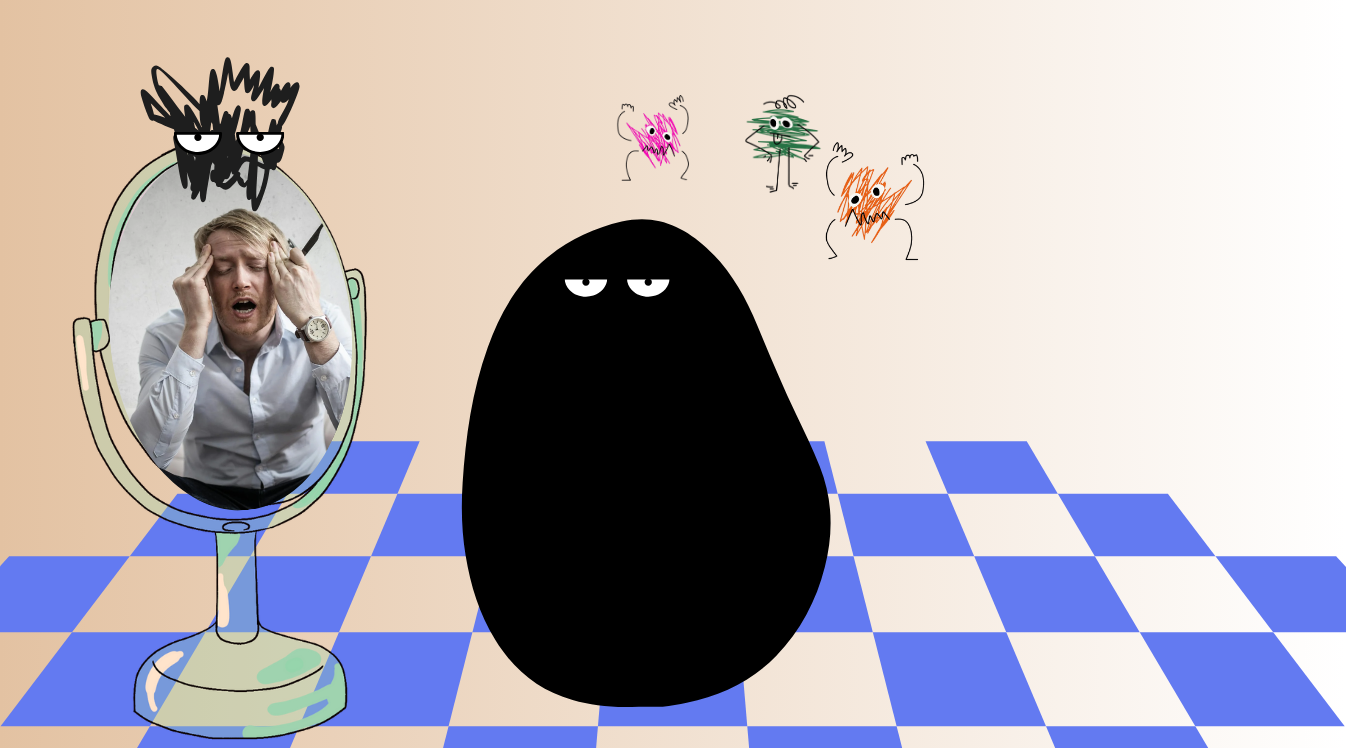Quieting Your Inner Critic: A Therapist’s Guide to Rewiring Self-Talk
Let’s be real—most of us don’t wake up thinking, “I can’t wait to beat myself up today.” But somehow, by mid-morning, between Slack messages, pitch decks, and our attempt to outrun failure, the inner critic kicks in.
You should be further along.
You’re not doing enough.
Keep pushing. Don’t fall behind.
If you’re a high-achiever, a founder, or a creative builder of any kind, this voice probably feels familiar. And while it may sound like the voice of discipline or ambition, what it really is… is a survival strategy.
The Psychology Behind the Voice
Negative self-talk isn’t just a bad habit. It’s a protective pattern. Often rooted in early experiences where love felt conditional, or rejection felt dangerous, your system learned to get ahead of the threat by doing one thing: turning inward.
It became easier to criticize yourself before anyone else could. Easier to stay in control than risk vulnerability. That voice in your head—the one that micromanages and pushes—is trying to keep you safe. But over time, it stops being helpful.
What once felt like motivation starts to feel like pressure.
What once guided you begins to consume you.
Founders, You’re Not Alone
This is not just anecdotal.
According to a study by Founder Reports, over 70% of entrepreneurs report experiencing imposter syndrome, self-criticism, or performance anxiety during their startup journey.
87% of entrepreneurs have admitted to struggling with imposter syndrome at some point in their careers.
Negative self-talk is not just emotionally exhausting—it directly affects performance. A recent study published in Nature Scientific Reports found that positive vs. negative self-talk can measurably impact brain states tied to motivation and executive function.
So if you’re feeling this—know you’re not weak. You’re wired.
What Do We Do With This Voice?
At Our Kind, we don’t ask you to shut down your inner critic. We invite you to relate to it differently.
Because the goal isn’t to silence the voice. It’s to respond to it with something more powerful: self-leadership.
Next time it says,
“You’re falling behind.”
“You didn’t do enough.”
“Keep going or you’ll fail.”
You might try pausing and offering yourself a new internal script:
“Today, I move with care. Even if I do less, I am still enough.”
“My worth is not measured by my productivity.”
And while that might feel soft or unfamiliar, that’s exactly the point. That moment of gentle intervention is how you begin to build self-trust. You’re not letting yourself off the hook—you’re guiding yourself with compassion instead of control.
There’s More Than One Voice Inside You
Yes, there is the critic.
But there’s also:
The one who dreams
The one who protects without panic
The one who knows how to rest
The one who feels joy without needing to earn it
When you slow down enough to ask,
“What do I need today?”
You start to make space for those parts, too.
You allow a different kind of leadership to emerge—one grounded in connection, not fear.
What Would It Feel Like to Lead With Trust?
At Our Kind, we honor the full ecosystem of your inner world.
We believe healing isn’t about fighting your inner parts—it’s about bringing them into relationship.
When you stop organizing your life around the loudest voice,
The critic no longer needs to shout.
It grows quieter. Then softer. Then still.
Try This Today:
Put one hand on your chest. Take a breath.
Ask yourself:
“What would it feel like to move through this day with trust instead of pressure?”
That might be the real power move.
And when you’re ready to explore this deeper, we’re here—rooting for the version of you that leads with softness and strength.
Written by Alaina Malik, LMHC.


